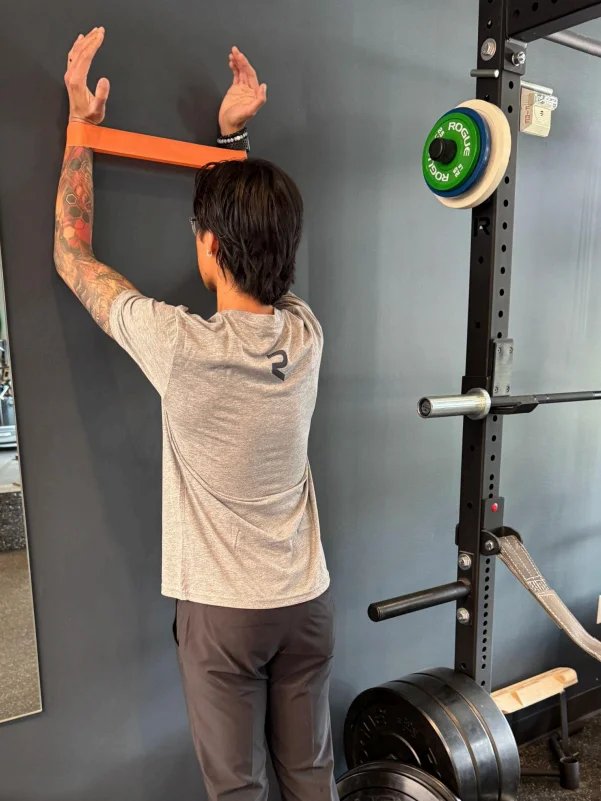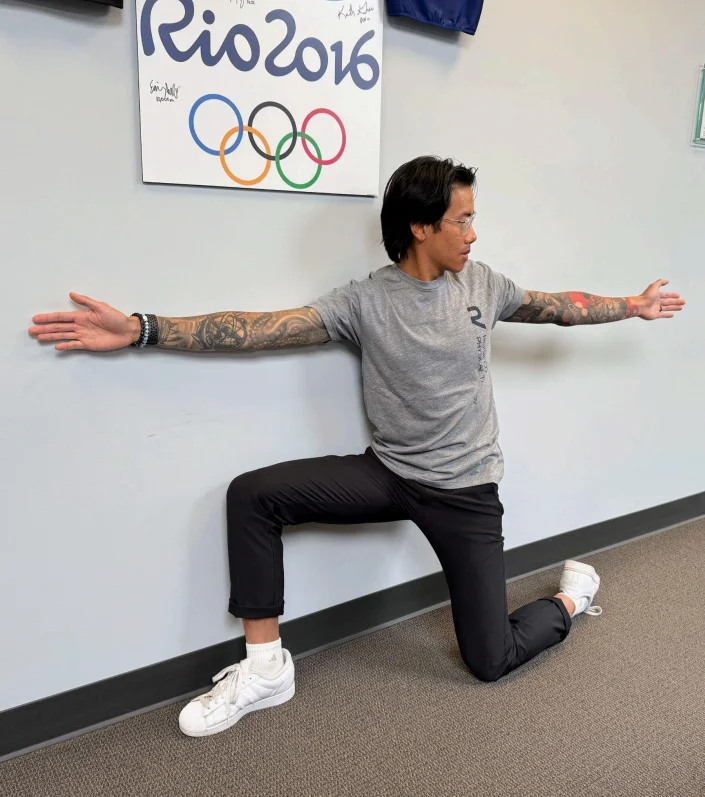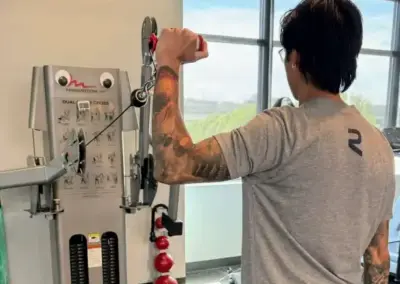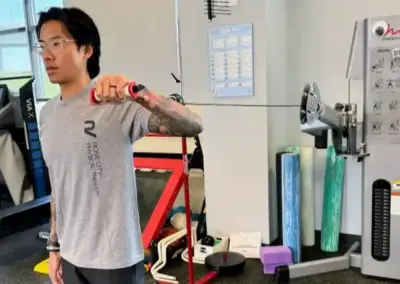Swimming is a great full-body workout and one of the most popular recreational and competitive sports. But as swimming gains popularity, so do overuse injuries, especially in the shoulders.
What Is Swimmer’s Shoulder?
Swimmer’s shoulder refers to issues in the shoulder caused by repetitive movements and overuse. Competitive swimmers can move their arms up to 30,000 times a week, often swimming up to 50 miles or more. That’s a lot of stress on the shoulder joint!
The shoulder is a ball-and-socket joint, made up of three prominent bones:
- The scapula (shoulder blade)
- The humerus (upper arm bone)
- The clavicle (collarbone)
It’s a very mobile joint, which helps swimmers move freely, but it’s also naturally unstable. That’s where the rotator cuff comes in. This group of muscles maintains the shoulder’s stability and contributes to all four swimming strokes: freestyle, backstroke, breaststroke, and butterfly.
Even though swimmers train in all strokes, most of their time is spent swimming freestyle.
What Causes Swimmer’s Shoulder?
Several factors can contribute to shoulder pain in swimmers. These fall into two groups:
Intrinsic (Inside the Body) Factors:
- Weak or fatigued rotator cuff muscles
- Imbalance between the internal and external shoulder rotation range of motion
- Poor core and trunk stability
- Weakness in shoulder or back endurance
When shoulder muscles become tired, they can’t perform their job effectively. This can lead to impingement, where tendons get pinched inside the joint.
Extrinsic (Outside the Body) Factors:
- Poor technique (like incorrect hand entry)
- Not warming up properly before practice
- Swimming more than 15-20 hours per week
- Past shoulder injuries
- High training loads without proper rest
Research shows that swimmers who log over 21 miles a week are four times more likely to develop shoulder tendon problems, especially in the supraspinatus tendon, one of the rotator cuff muscles.

Common Shoulder Injuries in Swimmers
Here are the most frequent types of shoulder injuries we see at Rose City Physical Therapy in Portland:
1. Shoulder Impingement
Impingement occurs when the rotator cuff tendons or the biceps tendon get pinched within the shoulder complex. It often occurs during the overhead part of the stroke, especially when the shoulder is rotated inward.
2. Muscle Fatigue and Overuse
Swimmers train hard. Over time, the small muscles that keep the shoulder stable, such as the rotator cuff and the muscles of the shoulder blade, can become fatigued. This can lead to poor stroke technique and pain.
3. Shoulder Laxity (Instability)
Some swimmers have loose joints, meaning their shoulders move around more than they should. If the shoulder becomes too unstable, it forces the muscles to work harder, which causes fatigue and pain.
How Rose City Physical Therapy Can Help
If you’re a swimmer dealing with shoulder pain in Portland, Oregon, our experienced team at Rose City Physical Therapy can help you get back in the water safely. We focus on:
- Reducing pain and inflammation
- Improving shoulder strength and stability
- Correcting stroke mechanics
- Preventing future injuries
We understand the demands of swimming and how to maintain a strong, healthy body that is free from injury. Whether you’re training for a competition or just swimming for fun, shoulder pain shouldn’t slow you down.
Don’t Let Shoulder Pain Keep You Out of the Pool
At Rose City Physical Therapy in Portland, Oregon, Keldon Lou, DPT, has completed his sports residency and specializes in helping swimmers recover from shoulder injuries and return to peak performance. A former competitive swimmer, he understands the demands of the sport on the shoulder complex.
If you’re experiencing swimmer’s shoulder, schedule an appointment with Keldon today. Give us a call at 503-228-1306. We’re here to help you move better, feel better, and swim stronger.





